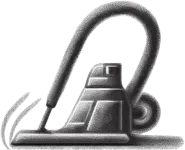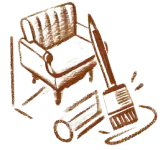
Discover the joy of a clean and inviting home with FamilyGoody’s expert cleaning tips and product recommendations.
Welcome to FamilyGoody, your ultimate destination for all things cleaning! Whether you’re looking to tackle mopping tasks, optimize your vacuuming routine, or find the best cleaning solutions for your home, we’ve got you covered. Our team of experts is dedicated to providing top-notch tips, guides, and product recommendations to keep your living spaces sparkling and tidy. With FamilyGoody, maintaining a clean and inviting home has never been easier. Join us on this journey to embrace a cleaner, healthier lifestyle for your family!
Home Cleaning Simplified: Your Go-To Cleaning Guide

Mopping
Keep your floors spotless with our comprehensive mopping category. Discover the latest mopping techniques, find the best mop for your needs, and explore eco-friendly cleaning solutions. From hardwood to tiles, we have you covered with expert tips and product recommendations to achieve squeaky-clean floors effortlessly.

Vacuuming
Explore our comprehensive vacuuming category for the latest tips, top-rated vacuum cleaner reviews, and expert advice. From finding the best vacuum for your specific needs to optimizing your cleaning routine, we have everything you need to keep your home spotless and tidy. Let FamilyGoody be your ultimate resource for a cleaner, healthier living space.

Cleaning
Explore our Cleaning category to find comprehensive guides, effective cleaning tips, and top-rated products. From mopping and vacuuming to eco-friendly solutions, we’ve got everything you need to maintain a spotless and healthy home environment. Let us help you simplify your cleaning routine!
A Spotless Home Awaits: Empowering You with Cleaning Expertise
At FamilyGoody, we are committed to empowering our readers with the knowledge and tools they need to achieve a spotless and inviting home environment. From expert cleaning tips and techniques to in-depth product reviews and comparisons, our site is your go-to resource for all things cleaning. Whether you’re looking to master the art of mopping, optimize your vacuuming routine, or explore the latest cleaning innovations, we’ve got you covered. Let us be your guide on the journey to a cleaner, healthier, and happier home.
Guides And Resources
Don’t know where to start. Read our latest articles…..
- Revive Your Polished Concrete: Expert Tips for Removing Stubborn Stains
- Meyers Multi-Surface Cleaner: Does It Eliminate Germs? Find Out Here!
- What’s The Best Way To Clean Bathtub Grime Ever?
- Enhance Your Strata Property with Professional Cleaning Services
- Tips for Clean Tile Floors: Say Goodbye to Footprints
- Effortlessly Tackle Dog Hair: Harness the Power of a Vacuum Cleaner!
- The Ultimate Guide to Cleaning and Sanitizing Gym Mats: Expert Tips
- How Much Power Does a Vacuum Cleaner Use? Find Out Today!
- Efficiently Clean Baking Soda with Your Dyson Vacuum: Expert Tips
- Revamp Your Cleaning Routine: A Guide to Reverse Vacuum Cleaner Airflow
Searching For Cleaning Information?
Chances are you’ll find it here…
